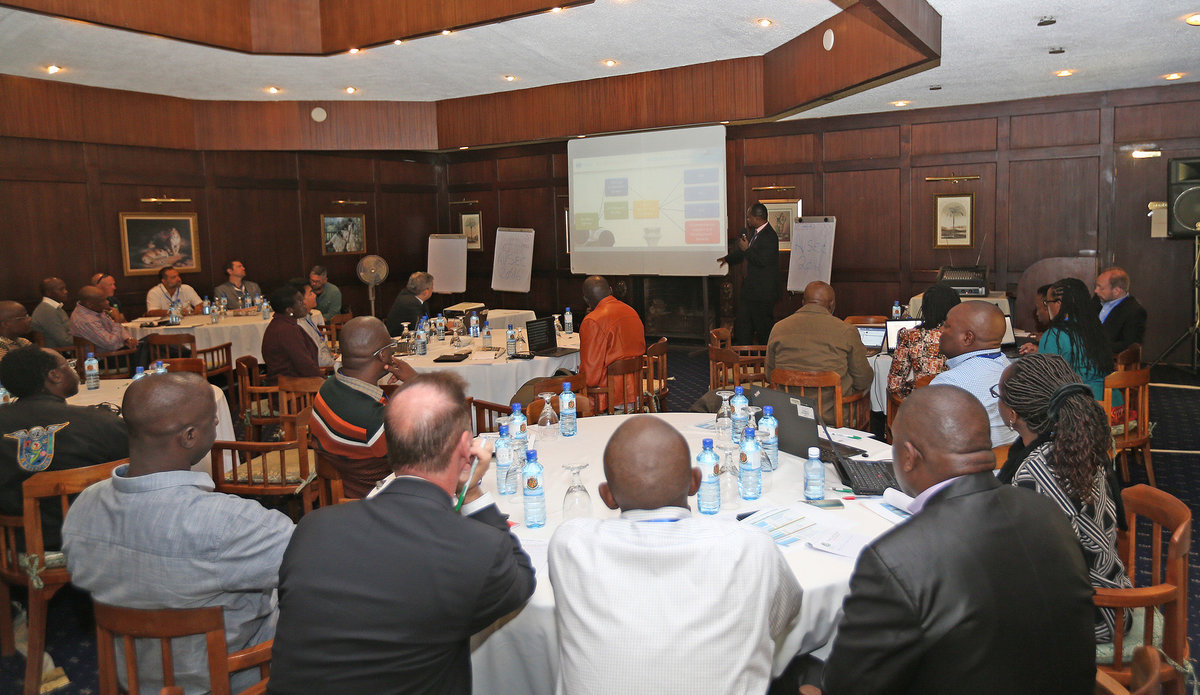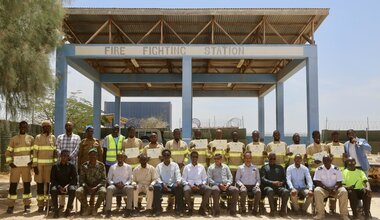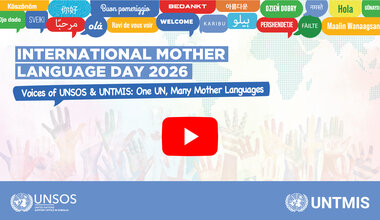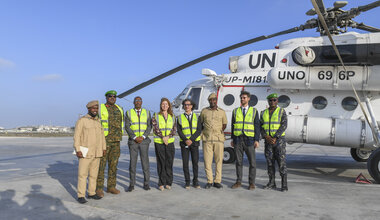UN commences process of developing standard aviation security procedures
Nairobi - The United Nations has kicked off a process of developing standard aviation security procedures to be used in all its peacekeeping missions.
Ernest Manzano, United Nations Support Office in Somali (UNSOS) Chief, Aviation Services, said the organization was already working with the International Civil Aviation Organization (ICAO) to identify loopholes that need to be sealed before the roll out of the procedures.
“We are trying as much as possible to understand aviation security programme, according to ICAO, who have offered to guide us through. We will then go on to develop a global Standard Operations Procedure for other UN Missions”, said Manzano at a workshop on aviation security held, this week, in the Kenyan capital, Nairobi.
He added; “In countries like Somalia and Yemen where using roads is a challenge, aviation becomes the lifeline. If you do not have a robust security programme with mitigation, the country cannot move forward.”
The objective of the workshop is to ensure different partners and stakeholders working in Somalia and other UN peacekeeping missions understand the concept of aviation security.
Mr Manzano observed that the biggest challenge working in some of the volatile countries was the lack of knowledge not only by the people charged with protecting aircrafts but also government officers responsible for aviation security.
ICAO’s Regional Officer, Aviation Security at the Southern and East African Office Mr Justus Nyunja said the number of people using aircrafts as a mode of travel had made it a soft target for terrorists.
“In 2015, there were 3.5 billion passengers and 34 million commercial flights. It shows a lot of activities take place in airports. It is why we need adequate facilitation at the airports”, said Mr Nyunja.
ICAO is currently involved in a promoting a campaign dubbed “No country should be left behind”, whose objective is to set uniform standards of security operation in all the countries.
Among a raft of measures being implemented, Mr Nyunja noted, was sharing of intelligence among countries, use of machine-readable passports and installation of electronic devices to read travel documents as a measure of identifying the travelers.
“It will be useless to enforce the standards in some countries and leave out others. Existence of a weak link might break the whole system and all our efforts would be in vain”, he added.
Mr Nyunja said many states, especially in Africa were not capable of ensuring adequate security in the aviation sector.
Both Nyunja and Manzano concurred that traveler identification still remained a big challenge in protecting the aviation sector from people considered a security risk.
Mr Manzano said; “One of the single biggest threats so far is a case where a potential terrorist moves to another country as a refugee and acquires travel documents of the host country. In such a case no background information can be accessed.”
The workshop is a beginning of a series of activities aimed at drawing up guidelines to help in ensuring security of personnel, passengers, equipment and cargo within the aviation sector in the peace keeping missions.
 UN
UN





